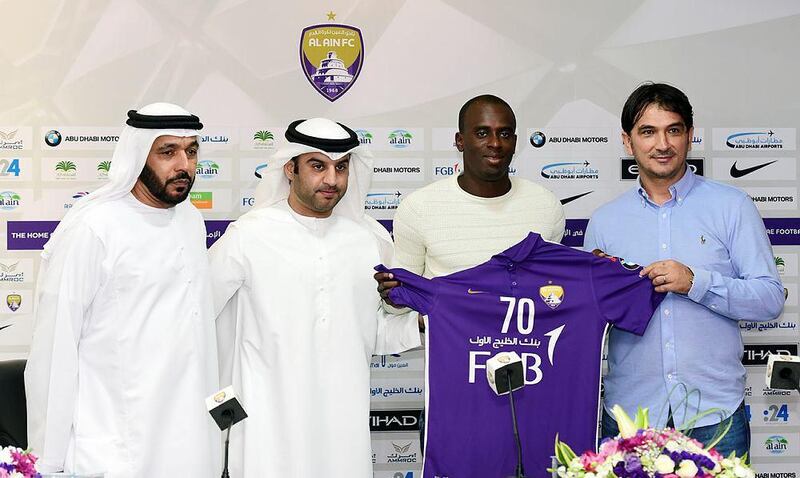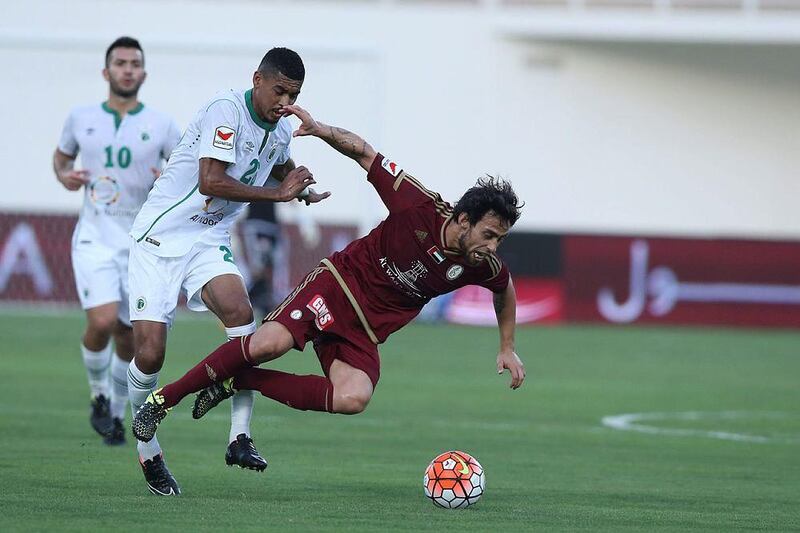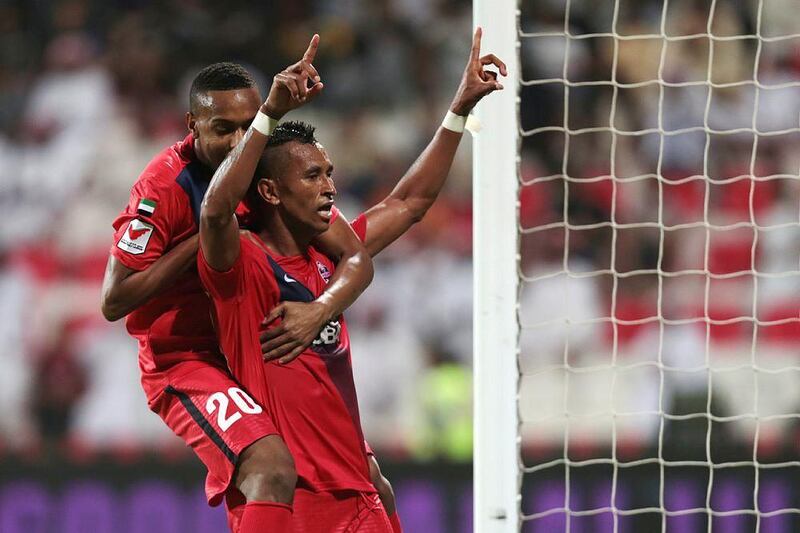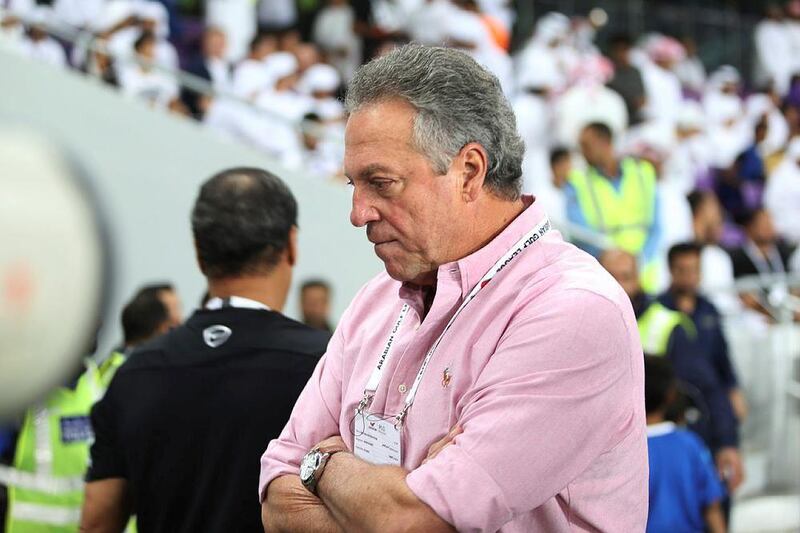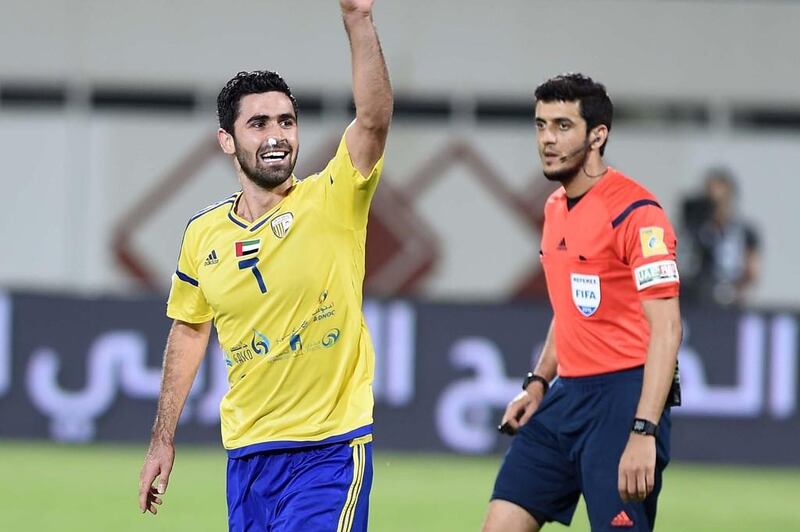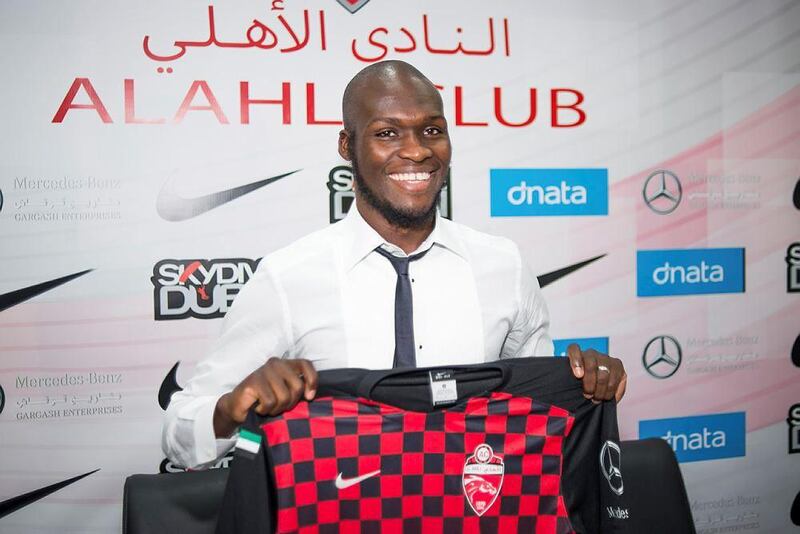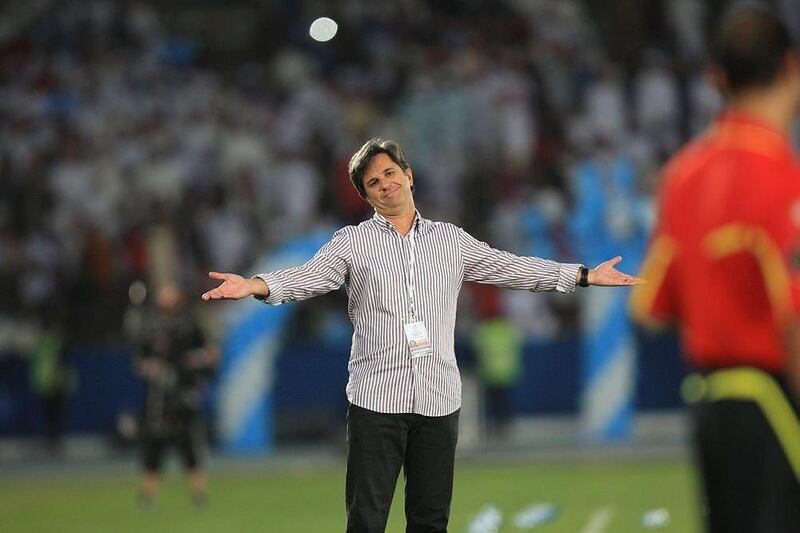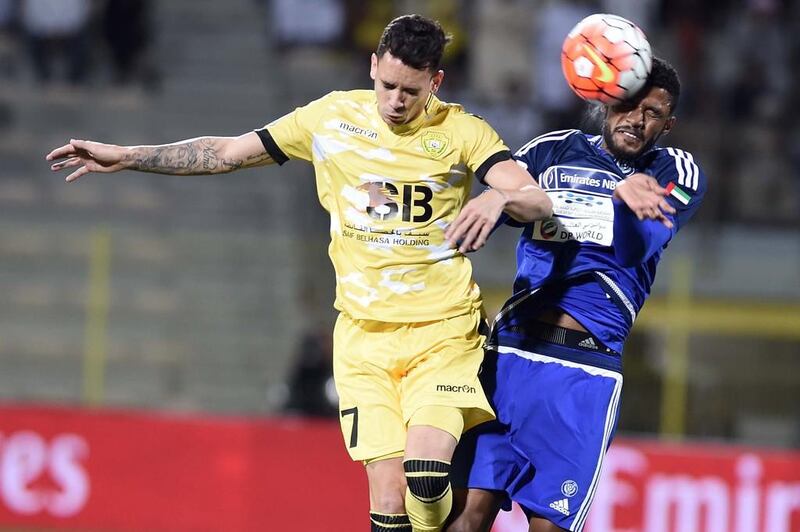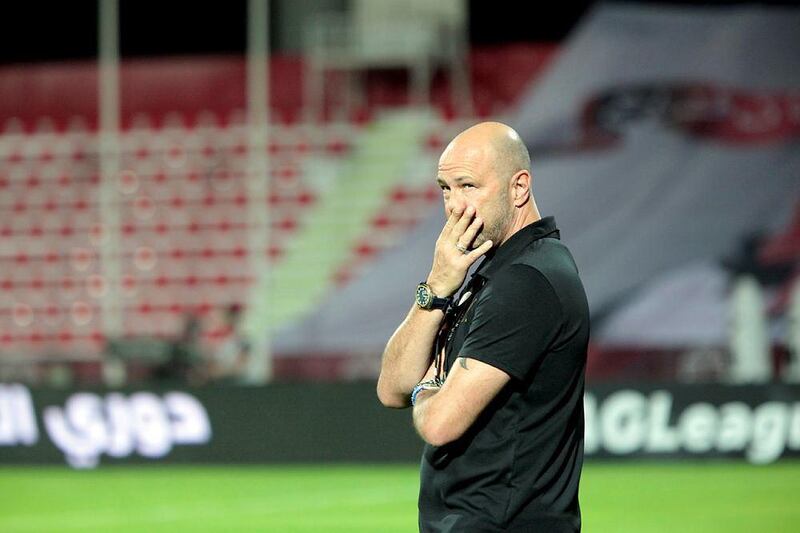With the 2015/16 Arabian Gulf League season in the books, John McAuley names his bests and worsts from the year in UAE football.
Best introduction – Danilo Asprilla, Al Ain
In need of attacking reinforcements in January despite sitting top of the table at the halfway stage, champions Al Ain unexpectedly signed Danilo Asprilla from Bulgaria’s Litex Lovech. The poor form of Ryan Babel and Emmanuel Emenike convinced the club board to raid the transfer market, with Asprilla planting himself in the Garden City without a great deal of fanfare. The Colombian winger did not take long to change that, though, making his debut as a substitute at Al Dhafra and striking in injury-time to win the match. The goal, a slalom run through the opposition defence and fine finish, instantly won over the Al Ain fans and led to joyous scenes on the pitch afterwards. Previously unrecognisable to most, Asprilla had announced his arrival.
Worst introduction – Jorge Valdivia, Al Wahda
One of the acquisitions of the summer, it was anticipated that Jorge Valdivia would light up both Al Wahda and the league. The Chilean had only recently helped his national team capture the Copa America, and his previous time with Al Ain meant most were looking forward to his return to the UAE. His debut certainly drew attention. Making his bow in the second round at home to Al Shabab, Valdivia was subjected to some harsh treatment from the opposition and at half time appeared to vent his frustration, when he directed an inappropriate hand gesture to supporters. Valdivia attempted to pass it off as a joke with friends in the crowd, but the Football Association still fined him Dh15,000 and handed out a two-match ban. Some start, that.
Best comeback – Ciel, Al Ahli
Integral in 2013/14 to Al Ahli’s first league title in five years, Ciel’s world was rocked when he suffered an awful double fracture of his ankle in the opening match of the following campaign. At 32, the Brazilian’s career could have been over, but the forward resolved to return, which he eventually did as a substitute against Al Wasl on January 4. Despite 15 months out, Ciel was rewarded for his patience and perseverance in his next match, scoring both goals as Ahli defeated Fujairah 2-0. The relief, embodied in his celebration, was palpable. He eventually concluded the season with six goals to help Ahli once more to the top-flight trophy, including the vital winner against Al Shabab, his former club. The season’s uplifting story.
Worst comeback – Abel Braga, Al Jazira
It was supposed to herald Al Jazira’s return to the good old days. Abel Braga, below, the manager who led the club to their only league title, back in 2011, pitched up at the club again in the summer, replacing Eric Gerets after the Belgian had guided them to a runner-up finish the previous season. Safe to say it did not go to plan. Braga’s reign was pitiful, the Brazilian’s methods out-dated and tactics easily outthought. By the time he was dismissed in December, Jazira had won three matches from 16, in the process conceded 38 goals and sat 11th in the table – an unexpected relegation scrap developing. What was worse, Braga commanded a significant salary, and conversely a pretty hefty pay-off. A costly mistake, indeed.
Best impact – Omar Khribin, Al Dhafra
Little was made of the Syrian forward when he joined Al Dhafra during the winter transfer window, despite him possessing a succession of fine performances for his national team. At club level, Khribin possessed a decent record, but a recent successful spell in Iraq convinced Dhafra to take a punt in January. The Western Region side, involved in the battle at the bottom, were in desperate need of someone to share the attacking brunt with Makhete Diop and thus drag them away from the relegation zone. Khribin delivered in spectacular fashion. After opening his account on debut against champions Al Ain, he went on the score nine goals in 12 appearances to help Dhafra finish eighth. Khribin’s rise was as surprising as it was steep.
Worst impact – Ryan Babel, Al Ain
Where to start? Ryan Babel arrived at Al Ain in July with declarations of ensuring the UAE champions prolong their success, but within months he had disappeared from view. The intervening period was packed with incident, though, including various social media controversies, supporters confronting him at training, club fines, demotion to the Under-21s team and even one red card. There was not much else to write about on the pitch, with Babel scoring two goals in 10 league appearances. The Dutchman remains at the club – he signed a two-year contract – but is sure to leave this summer. The wrong fit at a time when Al Ain were seeking to push on from Asamoah Gyan’s departure, his time in the Garden City never took root.
Best timing – Moussa Sow, Al Ahli
After arriving from Benfica in July, Rodrigo Lima was a revelation at Al Ahli and scored 19 goals in his first 24 games. His season-ending injury, sustained in December, therefore threatened to derail Ahli’s title charge, with the Dubai club chasing Al Ain as the quest for the championship morphed into a two-horse race. Step forward Moussa Sow. Admittedly, he had signed in September and, granted, it was reportedly a record €16 million (Dh66m) fee, but after initially struggling, the Senegalese frontman began to repay his employers with goals and match-winning displays. Tellingly, Sow struck decisive goals against Emirates and Sharjah to conclude the campaign with 13 league goals and a winner’s medal. Asked to fill the void left by Lima, he answered his club’s call.
Worst timing – Caio Junior, Al Shabab
Few would argue that Caio Junior had been a success as Al Shabab manager in his first season, taking the club to a third-placed finish. Yet his second campaign was not going quite as well when it took another turn for the worse last month, with the Brazilian discovering at a post-match press briefing that he would not continue next season. News had leaked during a live television report, so he was forced to comment. Clearly emotional, he detailed the fine work he had done at the club. His position was soon clarified, as Caio Junior was replaced by Fred Rutten immediately following the final match of the season. By then, of course, he had long known his fate. It represented a regrettable conclusion to his time there.
Best call – Caio Canedo, Al Wasl
Never one to shy away from offering his opinion, Caio Canedo took to social media before Al Wasl’s January match with neighbours Al Nasr and vowed to the club’s supporters that he would score the winner. There had been seven years of derby disappointment: Wasl had not defeated their Dubai rivals in the league since February 2009. But on a frantic night at the Zabeel Stadium they provided the perfect denouement to the drought. Wasl went 2-0 up, lost a man to a red card and relinquished their lead, only for Caio to break free in injury time and strike to seal the points. Wasl’s fans celebrated wildly afterwards, with their hero mobbed in the car park. Match-winner and clairvoyant, Caio had delivered on his promise.
Worst call – Walter Zenga, Al Shaab
Beginning the season in August in charge of Serie A’s Sampdoria, six months later Walter Zenga was being relieved of his duties at Al Shaab, the Arabian Gulf League’s bottom club. His brief tenure equated to three months, one victory, one draw and four points from 12 matches. It marked a sad juncture in his UAE career, since Zenga had excelled at Al Nasr and was unfortunate to not get more time at Al Jazira. The Italian knew what he was up against at Shaab, even early on describing the job as “mission impossible”. And so it proved, with Shaab eventually relegated with five rounds to spare before concluding the campaign with seven points – the lowest of any team in the professional era. Zenga should have given it a swerve.
